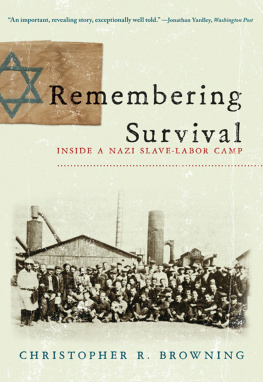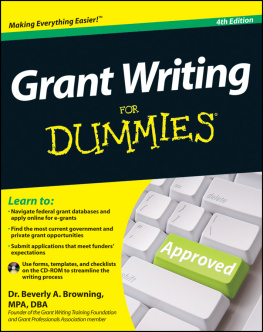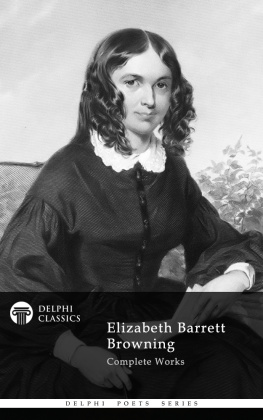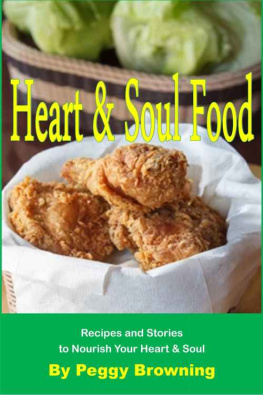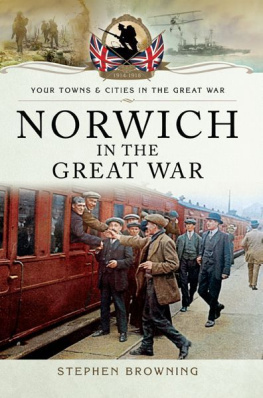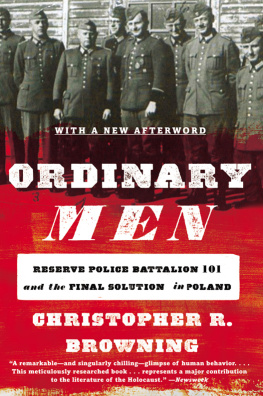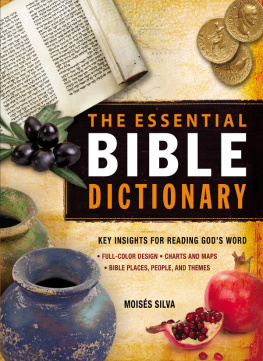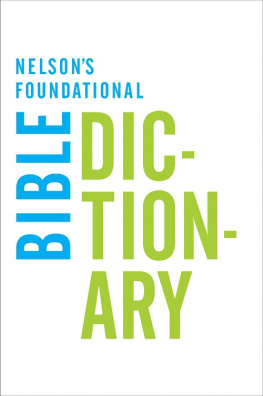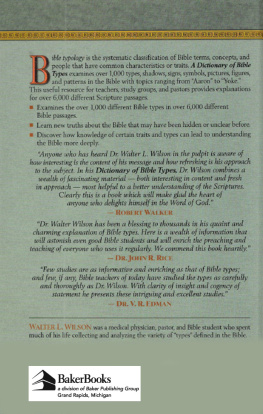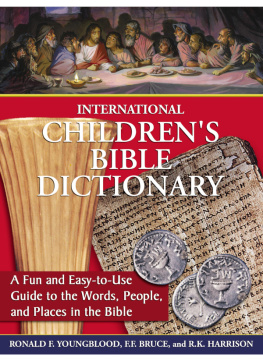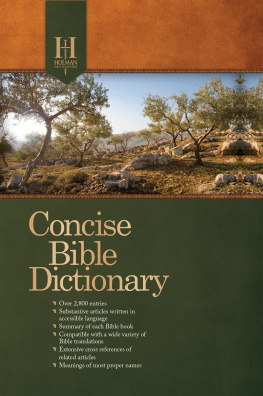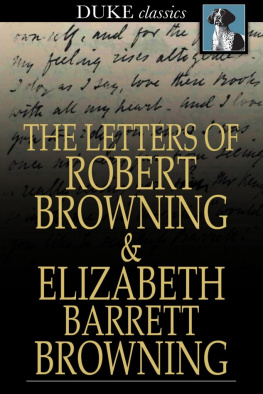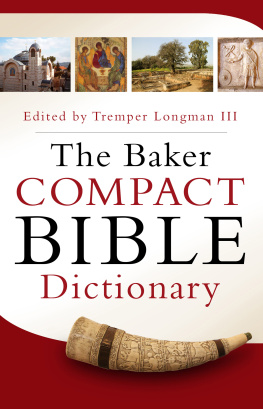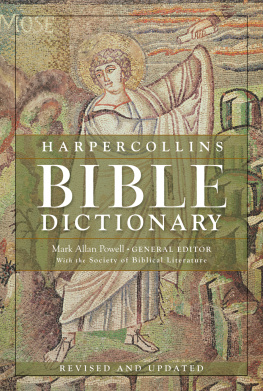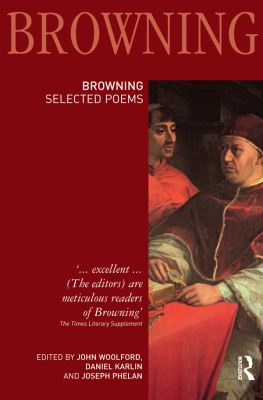Browning - Dictionary of the Bible
Here you can read online Browning - Dictionary of the Bible full text of the book (entire story) in english for free. Download pdf and epub, get meaning, cover and reviews about this ebook. year: 2009, publisher: Oxford University Press, genre: Religion. Description of the work, (preface) as well as reviews are available. Best literature library LitArk.com created for fans of good reading and offers a wide selection of genres:
Romance novel
Science fiction
Adventure
Detective
Science
History
Home and family
Prose
Art
Politics
Computer
Non-fiction
Religion
Business
Children
Humor
Choose a favorite category and find really read worthwhile books. Enjoy immersion in the world of imagination, feel the emotions of the characters or learn something new for yourself, make an fascinating discovery.

Dictionary of the Bible: summary, description and annotation
We offer to read an annotation, description, summary or preface (depends on what the author of the book "Dictionary of the Bible" wrote himself). If you haven't found the necessary information about the book — write in the comments, we will try to find it.
Dictionary of the Bible — read online for free the complete book (whole text) full work
Below is the text of the book, divided by pages. System saving the place of the last page read, allows you to conveniently read the book "Dictionary of the Bible" online for free, without having to search again every time where you left off. Put a bookmark, and you can go to the page where you finished reading at any time.
Font size:
Interval:
Bookmark:
A Dictionary of the
Bible

This is a web-linked dictionary. There is a list of recommended web links in the appendix, on page , click on Web links in the Resources section and click straight through to the relevant websites.
W. R. F. Browning has been a Canon Residentiary of Blackburn Cathedral and of Christ Church Cathedral Oxford. He is now an honorary canon and an honorary priest in West Oxford. He was for thirteen years a lecturer in New Testament Studies at Cuddesdon College, Oxford, and at the Oxford University Department for Continuing Education. His books include Commentary on St. Lukes Gospel (1960; 6th edition 1981), Meet the New Testament (1965), The Anglican Synthesis (1965), and Handbook of the Ministry (1985).

The most authoritative and up-to-date reference books for both students and the general reader.
ABC of Music
Accounting
Allusions
Animal Behaviour
Archaeology
Architecture and Landscape Architecture
Art and Artists
Art Terms
Arthurian Literature and Legend
Astronomy
Battles
Better Wordpower
Bible
Biology
British History
British Place-Names
Buddhism
Business and Management
Card Games
Century of New Words
Chemistry
Christian Art
Christian Church
Classical Literature
Classical Myth and Religion
Classical World
Computing
Contemporary World History
Countries of the World
Dance
Earth Sciences
Ecology
Economics
Education
Encyclopedia
Engineering
English Etymology
English Folklore
English Grammar
English Language
English Literature
English Surnames
Environment and Conservation
Euphemisms
Everyday Grammar
Family and Local History
Finance and Banking
First Names
Food and Nutrition
Foreign Words and Phrases
Geography
Humorous Quotations
Idioms
Irish History
Islam
Kings and Queens of Britain
Law
Law Enforcement
Linguistics
Literary Terms
London Place-Names
Mathematics
Medical
Medicinal Drugs
Modern Design
Modern Quotations
Modern Slang
Music
Musical Terms
Musical Works
Nicknames
Nursing
Philosophy
Physics
Plant Sciences
Plays
Pocket Fowlers Modern English Usage
Political Quotations
Politics
Popes
Proverbs
Psychology
Quotations
Quotations by Subject
Rhymes
Rhyming Slang
Saints
Science
Scientific Quotations
Scottish History
Shakespeare
Ships and the Sea
Slang
Sociology
Space Exploration
Statistics
Superstitions
Synonyms and Antonyms
Weather
Word Histories
World History
World Mythology
World Religions
Zoology
forthcoming
Bible
SECOND EDITION
Edited by W. R. F. BROWNING


Great Clarendon Street, Oxford OX2 6DP
Oxford University Press is a department of the University of Oxford.
It furthers the Universitys objective of excellence in research, scholarship, and education by publishing worldwide in
Oxford New York
Auckland Cape Town Dar es Salaam Hong Kong Karachi
Kuala Lumpur Madrid Melbourne Mexico City Nairobi
New Delhi Shanghai Taipei Toronto
With offices in
Argentina Austria Brazil Chile Czech Republic France Greece
Guatemala Hungary Italy Japan Poland Portugal Singapore
South Korea Switzerland Thailand Turkey Ukraine Vietnam
Oxford is a registered trade mark of Oxford University Press in the UK and in certain other countries
Published in the United States
by Oxford University Press Inc., New York
Oxford University Press 1996, 2004, 2009
The moral rights of the author have been asserted
Database right Oxford University Press (maker)
First published 1996
First issued as an Oxford University Press paperback 1997
Reissued with new covers 2004
Second edition 2009
All rights reserved. No part of this publication may be reproduced, stored in a retrieval system, or transmitted, in any form or by any means, without the prior permission in writing of Oxford University Press, or as expressly permitted by law, or under terms agreed with the appropriate reprographics rights organization. Enquiries concerning reproduction outside the scope of the above should be sent to the Rights Department, Oxford University Press, at the address above
You must not circulate this book in any other binding or cover
and you must impose this same condition on any acquirer
British Library Cataloguing in Publication Data
Data available
Library of Congress Cataloging in Publication Data
Data available
Typeset by SPI Publisher Services, Pondicherry, India
Printed in Great Britain
on acid-free paper by
Clays Ltd., St Ives plc
ISBN 978-0-19-954398-4 (Pbk.)
ISBN 978-0-19-954399-1 (Hbk.)
1 3 5 7 9 10 8 6 4 2
The invitation to compile this dictionary came to me from Angus Phillips of Oxford University Press and he gave me constant encouragement. I am also grateful to the Principal of Ripon College, Cuddesdon, for permission to use the library.
For this revised and expanded edition numerous paragraphs have been added and improvements made to existing entries. By the kindness of the Principal of St Stephens House Oxford, I have used the college library; and reviewers, academic colleagues, and my wife have all made important suggestions, though for any errors in the text, and also for controversial opinions expressed, I alone am responsible. A heavy secretarial load has been borne by my daughter Hilary, and collaboration with OUP editors has, as ever, been supportively reassuring. Finally, I have been fortunate to have the expertise of my colleague Russell Dewhurst in West Oxford, to compile the page of Web Links.
W.R.F.B.
This is a dictionary of the books of the Christian Bible. Its aim is to expound the main ideas of the Bible and to give information about the principal people and places that readers encounter but it is neither a concordance nor an encyclopaedia. The authors standpoint is that of a grateful indebtedness to the achievements of biblical scholarship since the Enlightenment, together with an awareness of modern criticisms of it.
There are no entries for persons of whom little more than the mere name is recorded in the biblical text. On occasion, however, entries are allowed to stray beyond the biblical era, where a theme in the New Testament has become more familiar as significantly developed over the centuries.
The dictionary is intended for students whether at school or university, and for a more general public of those who may be reading or studying the Bible at home or alongside others in a group from their local church or community, as well as those who primarily enjoy it as splendid literature. It is assumed that these students will use the NRSV or some other modern translation of the Bible, and therefore references to the Authorized (King James) Version are less frequent. The nomenclature follows, generally, that of modern translations; for example, those books in the New Testament which come after the four gospels and the Acts of the Apostles mostly consist of letters to communities and they are sometimes called letters in the dictionary, being occasional and personal rather than literary and considered, though the traditional epistles, still often heard in churches, is also used. This word perhaps reflects the fact that as well as similarities with other letters of the first century CE the theological content marks differences in style and purpose. Moreover, unlike letters of antiquity that have survived by chance (e.g. by being preserved in the sand) the New Testament letters were carefully safeguarded.
Next pageFont size:
Interval:
Bookmark:
Similar books «Dictionary of the Bible»
Look at similar books to Dictionary of the Bible. We have selected literature similar in name and meaning in the hope of providing readers with more options to find new, interesting, not yet read works.
Discussion, reviews of the book Dictionary of the Bible and just readers' own opinions. Leave your comments, write what you think about the work, its meaning or the main characters. Specify what exactly you liked and what you didn't like, and why you think so.

